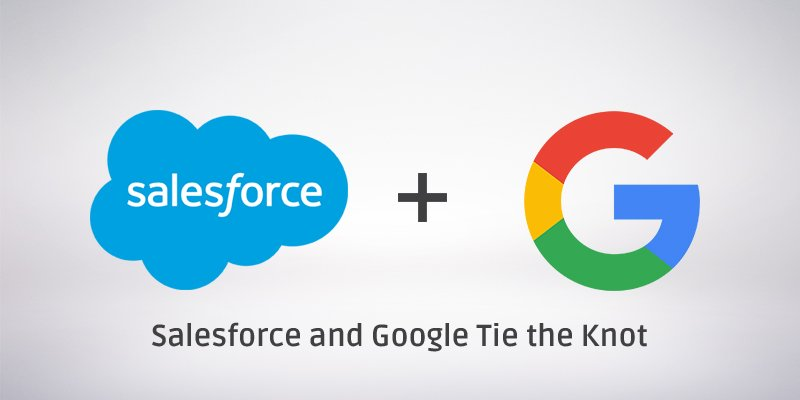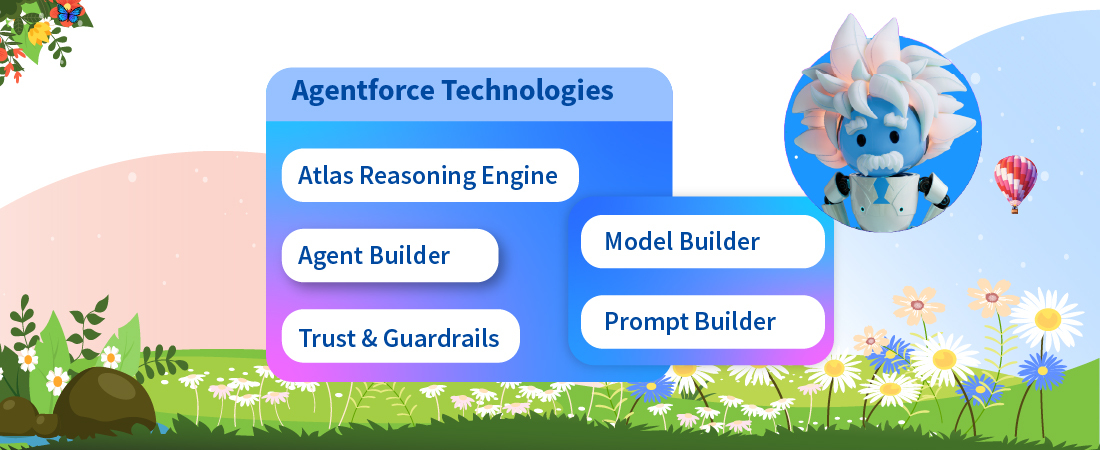The recent announcement during the event Dreamforce; Salesforce and Google Partnership took many by surprise, especially as of now the major cloud players were having a competition type of relationship. The example of Salesforce leveraging the Oracle database is one interesting example.
Within the ever-evolving Cloud Platform Market, this partnership could pose a major challenge to other SaaS Providers and in the business software market. With Google opening up its analytics platform for Salesforce, its customers will get a comprehensive view across Salesforce’s CRM frameworks.
This is a first of its kind partnership, Salesforce and Google, both leaders in their own right in the cloud. Salesforce joining forces with Google has the potential to emerge as a force multiplier for both the corporations in the cloud domain.

Though the details of this partnership will become clearer once we start seeing the integration of these two solution stacks in their respective products. To start with, both of them have outlined an integration of the Google Office Software with the Salesforce platform along with the integration of Salesforce Marketing Software with Google Analytics.
This Partnership is extremely crucial for both companies to help them enhance their solution. With LinkedIn’s acquisition by Microsoft, the CRM market can expect a new social selling paradigm emerging. Though Salesforce has been pushing its AI offering Einstein, it did not have an answer to the LinkedIn-Microsoft combination which it now has.
Salesforce, Customer Relationship Management
Customer Engagement
With this new development, competitors of Salesforce need to come up with services and better technology to be able to compete with this partnership. To come to a level at which services are being provided by Salesforce and Google together to the customer firms is not an easy task. Companies now using Salesforce will easily be able to integrate analytics with consumer data helping them design better customer engagement strategies.
Common customers of the two sellers will have the capability to leverage data residing within Salesforce, Gmail, Hangouts, Drive, Docs etc. Salesforce customers who would not be using G suite will be given an offer to use it for free for a year. It will be offered as a part of Google’s promotion act. The integration between Salesforce and Google Analytics 360 will most probably be available in the market in the first half of 2018 and will be offered at no extra cost.
Corporations leveraging Salesforce will now be able to correlate the data that is extracted from its Analytics. It will allow the companies to maintain and retain customers along with creating better visibility for their employees.
This partnership has become a part of Salesforce’s global infrastructure expansion plan. Mutually promoting each other, Google will use Salesforce as its preferred CRM Platform and Salesforce will use Google as the preferred Cloud Service provider for the Salesforce Customer. However, we also need to make note that Salesforce not only partners with Google but has also integrated with Microsoft Azure and Amazon Web Services.
Competitors need to understand how Salesforce is partnering with different tech leaders. For example, just last year Salesforce had made a big deal about choosing Amazon Web Services as its favoured public cloud foundation supplier. With Salesforce utilizing AWS in Canada and other regions along with running Heroku and different services. The new partnership could impact some of these providers.
This partnership will closely combine Salesforce’s customer relations management technology with Google’s G Suite. G Suite competes predominantly against Microsoft Office 365, especially in the SMB space.
As a whole to start with, Google and Salesforce have suggested that they will be focusing on one of the most important features required for the success of any company, i.e. Customer Experience. Companies will have data and insights like never before and will be able to put them to use. Not only will the functioning of the CRM become more efficient but the information drawn from the analytics can also be used in the Business Development of the customer companies.






